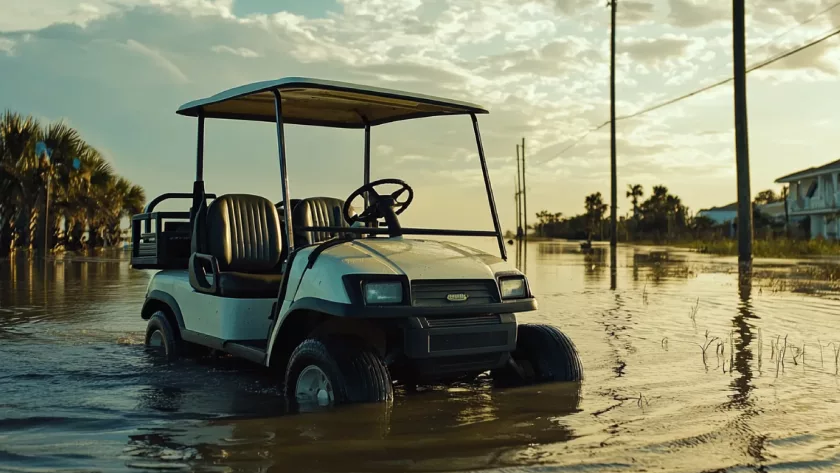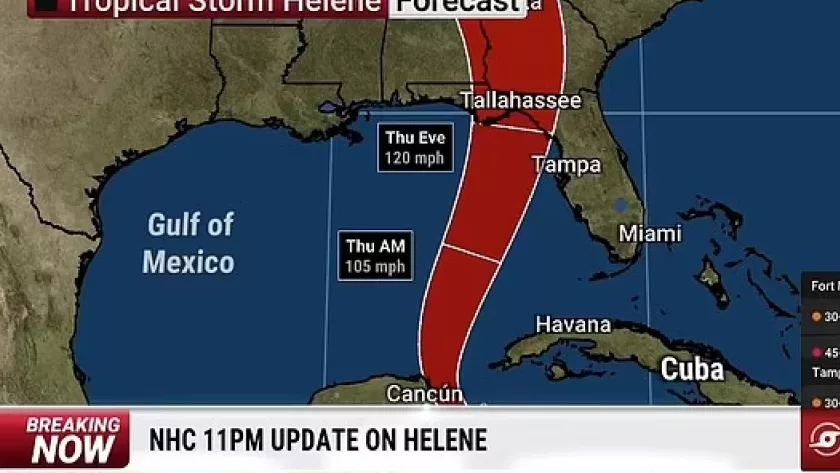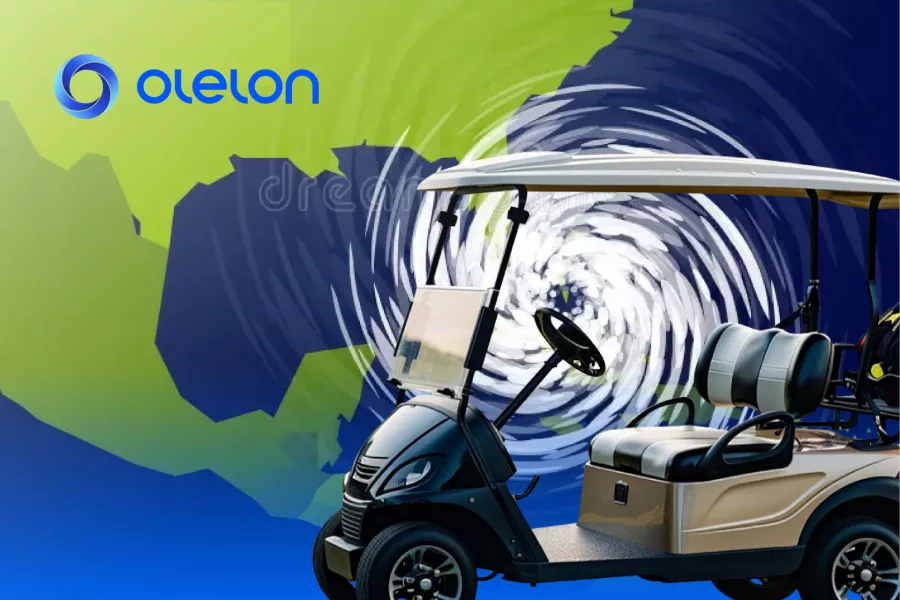Introduction
Hurricanes leave behind a path of destruction, and among the concerns often overlooked is the impact on golf carts. Whether you own a gas-powered or lithium-ion electric golf cart, understanding post-hurricane risks is essential for safety and long-term usability.
1. Flooded Golf Carts: Water Damage Severity
Comparing Lithium-Ion and Lead-Acid Battery Golf Carts
One of the biggest concerns after a hurricane is whether a water-exposed golf cart can be salvaged.
- Lead-acid battery golf carts: Flooding can cause short circuits, corrosion, and battery failure. Lead-acid batteries may survive short-term submersion if dried and cleaned properly, but long-term damage is likely.
- Lithium-ion battery golf carts: While lithium-ion batteries are sealed and less prone to immediate corrosion, exposure to water—especially saltwater—can lead to dangerous thermal runaway, increasing fire risks.

2. Post-Hurricane Fire Risks: Fact or Fiction?
It is reported that 80% of fires caused by golf carts involve lithium-ion batteries, according to St. Johns County Fire Rescue. While lithium-ion technology offers superior performance and longevity, water damage—especially from salt water—can create electrical instability.
Key Safety Precautions:
- Move exposed electric vehicles or golf carts at least 50 feet away from buildings to prevent fire hazards in the days following a storm.
- Disconnect the battery and avoid attempting to charge a flooded lithium-ion battery.
- Inspect all wiring and battery enclosures before using the cart again.

3. Gas vs. Lithium-Ion Golf Carts: Which is More Resilient?
After a hurricane, gas-powered and electric golf carts each have their own challenges:
- Gas-powered golf carts may experience water contamination in the fuel system, engine failure, or rusting in the carburetor.
- Lithium-ion golf carts pose a greater fire risk if saltwater damage has occurred, but they avoid the mechanical issues that gas engines face.
Which One Should You Choose?
For those who seek reliability and adventure, lithium-ion golf carts offer long-term advantages, including reduced maintenance and faster charging. However, post-hurricane safety measures must be taken seriously.
Conclusion
Whether you own a gas or electric golf cart, understanding post-hurricane risks can prevent accidents and financial loss. If your golf cart has been submerged, prioritize safety, and if you’re considering an upgrade, weigh the pros and cons of lithium-ion versus gas-powered models. In an era of exploration and resilience, lithium-ion technology remains a bold choice for those ready to embrace the future of golf carts.

